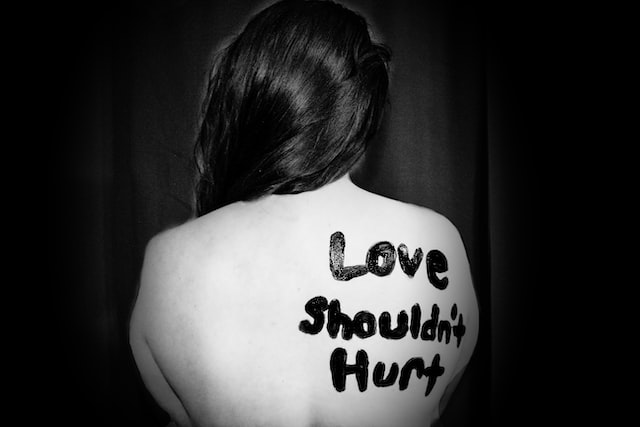As I write this, it is May, which is Mental Health Awareness Month, and I’d LOVE to talk a minute about five myths I hear *all the time* about therapy.
To do that, I need to tell you my story in a nutshell…
(What I want you to remember as you read this is that I am OKAY. Everything for me has turned out VERY well.)
I am a survivor of childhood sexual abuse by my father, who was also an alcoholic. Pretty sure my mother was a narcissist, but I do not diagnose.
When I was in high school, my father – an Army sergeant – moved to Panama where he was stationed for a year. He met a woman he wanted to be with, and one foggy October morning, he called my mother and demanded a divorce. She went down to Panama to save the marriage, he tried to kill her, so no reconciliation.
I Took My Chance
At that time, I saw my opportunity and disclosed the sexual abuse I had endured. We involved military police, he was arrested and never charged, and he was set free. My mother took him back, there was more turmoil, he beat her up and ran off in my car. That was the last time I saw him. I was 17 years old.
Less than a month later, my mother and sister moved to California, and I lived with a family to finish my senior year of high school and make my way to college on a full ride academic scholarship.
Fast forward to 2006, where I was diagnosed with PTSD and started on this healing journey. In 2020, I worked with a therapist on a technique that got rid of my PTSD symptoms, which made me want to help others with PTSD and cPTSD symptoms, so I achieved some valuable certifications in both trauma and grief recovery, and here I am.
I’ve been in trauma and grief recovery for 20-ish years, and I’ve told a lot of lies to myself in that amount of time, including lies about therapy. I also hear a lot of them when people find out that I work in mental health. Here are the TOP 5 Therapy Myths that are the most popular.
Myth #1 – I Haven’t Been Through Trauma
Like Brene Brown said, “Nobody rides for free.”
If you are a human, you have experienced traumatic events.
The word “trauma” muddies the water a bit, because it’s mental health jargon. It’s a word similar to “self-care,” which has been thrown around so much that nobody really knows what it means.
“Trauma” are those events and experiences in our lives that have effected our brains, nervous systems, emotions, feelings, thoughts, relationships, the work that we do – everything. There’s a book called, The Body Keeps the Score, which basically outlines how our nervous systems store trauma in our bodies. Think about PTSD, which is a nervous system that is stuck in the ON position and keeps moving in the same panicked loop until we stop it.
In addition, trauma can take a lot of time to surface. My childhood sexual abuse happened in the mid to late 1980s, and I was diagnosed with PTSD in 2006. That’s a lot of time in between.
A couple of ways to get some perspective on your own possible traumatic experiences is first, to take the ACES quiz and see your score. Another is to take the free PTSD Quiz. And below is a helpful video about the reality of trauma in our lives ⬇️ ⬇️
Myth #2 – My Trauma isn’t Bad Enough
Remember how my childhood sexual abuse happened in the mid to late 1980s, and I was diagnosed with PTSD in 2006? Part of that is from me trying to convince myself that what happened was “no big deal” and “not as bad as others have it.”
The “not bad enough” idea is a survival mechanism, a natural and reasonable response to pain. This is one way that the brain tries to protect you from system overload and total breakdown while trying to process through what happened to you.
The reality is that you and I could experience the same traumatic event and have totally different responses. That event might completely overwhelm me, while you might be able to process it really easily. There are many factors at play here.
Admitting that events and experiences were traumatic feels vulnerable and risky, and opens the door for what I call “Purposeful Pain.” This is the kind of pain we feel when we heal from a deep wound. As we take care of that wound, it will stop hurting and it will heal into a scar.
But first, it’s super important to admit that we had tough experiences or events happen to us.
Myth #3 – The Past is the Past, just Put it Behind You
I tried this.
When I was done with college, I said, see, I’m great, I’m going to start teaching and leave all of this trauma behind me.
It did not work.
Trauma shows up in your body, in your nervous system, your brain, your relationships, your work, your parenting, everywhere.
And once I figured out that there was no getting away from it – which was 2006 – I worked my way through it and ended up writing a book. Not that everyone needs to do that (LOL), but processing in some ways gives you power and control over how trauma and grief appear in your life.
Myth #4 – Talk Therapy Doesn’t Work
The thing about trauma recovery is that there’s NO ONE “RIGHT” WAY. We have different needs at different times. And sometimes, it’s not the right time for talk therapy. There are times that call for different interventions.
For example, I have a knot that has lived on the edge of my right shoulder blade since I was a teenager. It has lived there for 30(ish) years. I have been trying to find someone who can work with that spot for at least a decade, and I finally found Counterstrain, which is a massage treatment that focuses on removing trauma from the body. I wouldn’t have found it without looking and trying and being open.
Talk therapy is one important way to process through traumatic experiences, and this kind of therapy pairs really well with other types of therapies. There are also many, many other therapies that help process traumatic experiences. I’ve tried almost all of them that I’ve heard about. All are important and work in different ways.
So if talk therapy doesn’t work, let’s try a different therapy.
Myth #5 – I’ll Be in Therapy Forever
Therapy depends on YOU.
YOUR choice. YOUR needs. YOUR voice.
As a mental health specialist, I see myself as part of a larger healthcare team. Ideally, we have a family doctor, a dentist, and specialists, like an eye doctor. We might see other health professionals, like personal trainers, massage therapists, physical therapists – the list is exhaustive. (side note: I like to say, “It takes a village to raise a Kelly” 😊)
Therapy is about you and your needs. You get to decide if you want to go to therapy forever or not. You get to choose.
Typically, I see clients once a week or once every other week, which keeps people on track with their recovery desires and goals. I have clients that I see once a month for what they call “check ups.” I have many clients that I see as needed. I also see clients twice a week when there is a crisis.
I like to remind people to NOT wait for a crisis to find a good mental health professional. You want those professionals in your back pocket, because – as Brene Brown said – nobody rides for free.
Final words…
Life is hard enough.
We don’t need to do this life alone.
Healing happens in community, so let’s build a good one.
About Trauma & Grief Recovery Coaching
Sign up here to get a free copy of Five Things Every Trauma Survivor Needs to Know AND
61 Tips About the Grief Experience.
Find out more about Trauma and Grief Recovery Coaching
I offer one-on-one sessions, groups, PTSD Remediation, and classes. Appointments are offered in-person and online.
Try Trauma Recovery and Grief Recovery Coaching for Free! Book a free 30-minute Discovery Call to find out more!












